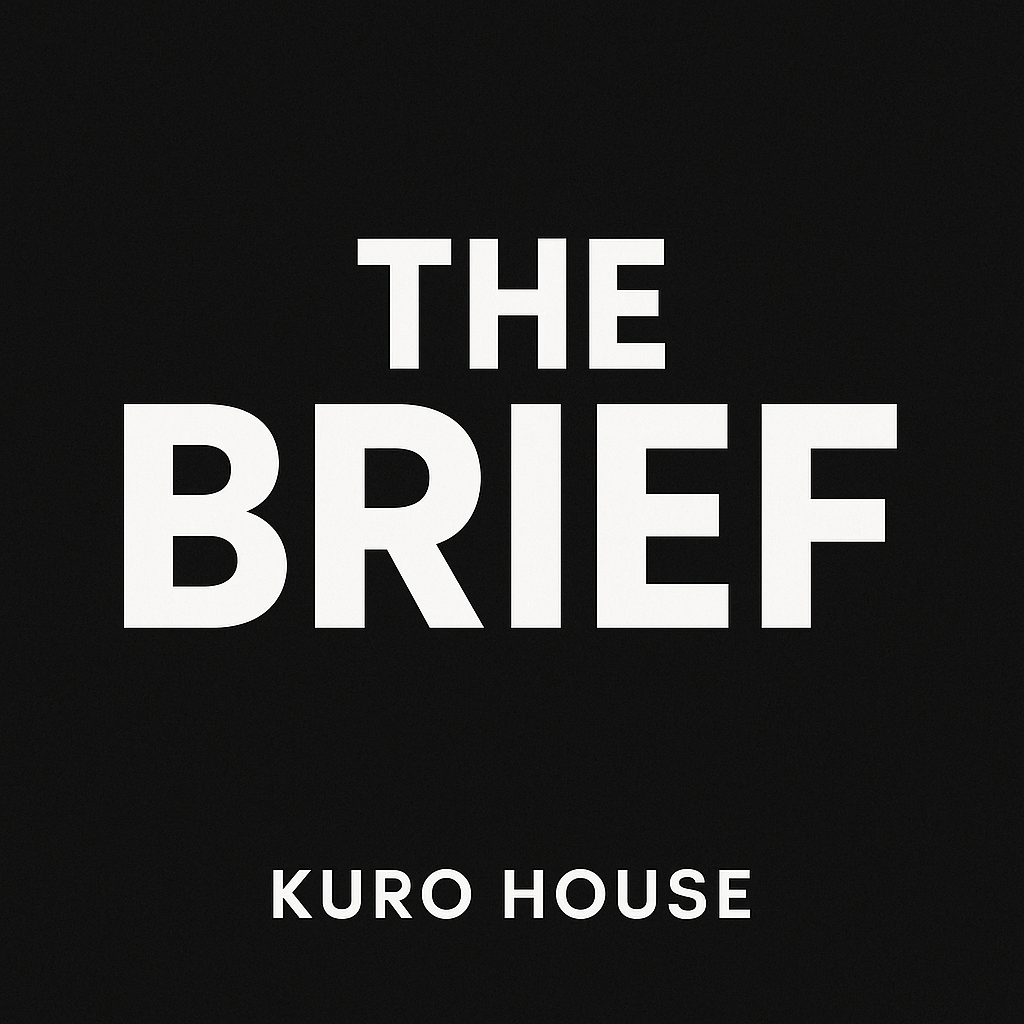Listen To The Show
Transcript
Welcome to The Brief by Kuro House, your daily pulse on the stories shaping marketing and media. I’m glad you’re tuning in, because today’s lineup is a masterclass in how innovation, leadership, and shifting consumer habits are rewriting the rules of our industry. From AI-driven agency mergers to the changing face of streaming, there’s a lot to unpack—so let’s dive right in.
First up, a major move in the world of marketing agencies: Incubeta, the global marketing powerhouse, has officially acquired RocketSource, a consultancy known for its human-centered artificial intelligence solutions. According to Adweek, this isn’t just a standard acquisition—RocketSource’s co-founders Jonathan Greene and Steven Kiger are joining Incubeta, and the consultancy will be fully integrated into the agency’s operations. What does this mean for clients? Incubeta is now supercharging its ability to deliver performance-driven marketing by blending machine logic, behavioral science, and proven frameworks. RocketSource brings to the table its proprietary StoryVesting framework, which aligns customer experiences through storytelling, making marketing smarter and more human at scale. Clients will also benefit from advanced audience identification, activation, and measurement across complex datasets, with access to data-as-a-service for full-funnel attribution, ROI analysis, and predictive analytics. Incubeta’s leadership is clear: the future is about rapid, AI-driven results without losing sight of the human element. As CEO Jacques van Niekerk put it, this move is about breaking down silos, unlocking richer insights, and setting clients up for generative growth. For marketers, this signals a new era where AI isn’t just a tool—it’s a strategic advantage that’s here right now.
Switching gears to the health and wellness space, Caroline Goodner, founder and CEO of OrganiCare, sat down with Brave Commerce to discuss her mission to destigmatize women’s healthcare. OrganiCare is the company behind FemiClear, and Caroline’s journey is a lesson in both entrepreneurship and advocacy. She’s built OrganiCare by addressing overlooked but common women’s health issues—think vaginal health and the regulatory hurdles that come with it. Caroline spoke candidly about how OrganiCare leverages platforms like TikTok to educate consumers and drive awareness in a category that’s often misunderstood and tightly regulated. The company’s approach combines science-backed, natural products with a retail strategy that’s quickly scaling in brick-and-mortar stores. But it’s not just about products; Caroline’s leadership style is shaped by her decision to step back from a prior venture for family, a move that redefined her approach to business and balance. For marketers in regulated or stigmatized categories, OrganiCare’s playbook—innovation through education, authentic consumer engagement, and bravery in leadership—is a roadmap worth studying.
On the diversity and leadership front, Adcolor has named Richelieu Dennis as its 2025 Beacon Award winner, as reported by Adweek. Adcolor, known for championing diversity in the creative industries, is honoring Dennis for his work amplifying community, fostering representation, and driving meaningful change. Dennis is best known as the founder of Sundial Brands, which includes SheaMoisture and Nubian Heritage, and for orchestrating one of the largest beauty and personal care deals in U.S. history when he sold Sundial to Unilever in 2017. But what sets Dennis apart is what he did next: he launched the New Voices Fund, channeling over $200 million into emerging entrepreneurs, particularly women of color. The fund’s portfolio includes success stories like Mielle Organics and The Honey Pot Company. Today, Dennis chairs Sundial Media & Technology Group, which owns cultural brands like Essence, Afropunk, Beautycon, and Refinery29, and is focused on transforming access to capital, mentorship, and opportunity for underserved founders. Dennis’s “community-commerce-culture” model and his use of technology and AI to build immersive consumer experiences are redefining what it means to lead with purpose. As Adcolor’s Tiffany R. Warren put it, Dennis embodies the mission to “Rise Up, Reach Back,” turning personal success into collective empowerment.
In agency news, there’s a homecoming at Goodby Silverstein & Partners (GS&P): Sarah Thompson is stepping in as the agency’s first-ever CEO, according to Adweek. Thompson began her career at GS&P in the early ’90s and went on to help build Droga5 into one of the world’s most celebrated creative agencies, ultimately serving as global CEO. She steered Droga5 through international expansion and its sale to Accenture, later overseeing advertising at Accenture Song and integrating more than a dozen acquisitions. Now, she’s relocating to New York to lead GS&P’s East Coast office, which is increasingly central to the agency’s future. Thompson’s leadership is all about the intersection of creativity and business results—she’s reuniting with chief creative officer Margaret Johnson, and together they’re committed to “work that works.” Under Thompson, expect GS&P to keep pushing boundaries in technology and AI, building on innovative projects like “Cheetos Vision” and AI-powered collaborations with Google and OpenAI. The agency’s net new business revenue has jumped 300% since July 2024, and with Omnicom’s planned acquisition of Interpublic Group, GS&P’s access to data, media, and tech is only set to grow. Thompson’s message is clear: in a world of rapid change, great creativity rooted in strategy remains essential.
Finally, let’s talk about the state of streaming subscriptions, courtesy of Digiday’s Future of TV Briefing. The streaming landscape is shifting: subscription growth is decelerating, churn remains steady, and more people are signing up for services through aggregators—a move that ironically mirrors the old cable TV bundles just as the NFL becomes fully available to cord-cutters. The report highlights six key charts that illustrate these trends, drawing on data from Antenna Group, Samsung Ads, and Hub Entertainment Research. Some standout numbers: 17.3 million people streamed YouTube’s NFL broadcast of the Chiefs-Chargers game, and TikTok now claims 200 million users in Europe. Meanwhile, NBCUniversal sold out Super Bowl ad inventory 158 days before the big game. For creators, there’s a new playbook: licensing video back catalogs to free, ad-supported streaming TV channels, which boosts their value to sponsors. Snapchat’s Snap Stars program is also giving creators a bigger share of ad revenue, and increased transparency among creators about sponsorship rates is driving up their earnings. On the ad side, media buyers are pushing for lower CPMs even as streaming budgets rise, and networks like Fox and ESPN are debating the accuracy of YouTube’s viewership metrics. The bottom line? Streaming is evolving fast, with aggregation, creator monetization, and ad economics all in flux.
That’s a wrap for today’s Brief. The stories we covered show how the industry is being reshaped by bold leadership, technological innovation, and the ever-changing habits of audiences and creators. Whether you’re navigating agency mergers, building purpose-driven brands, or decoding the streaming wars, one thing’s clear: staying sharp means staying curious. Thanks for listening—see you tomorrow for more insights to keep you ahead of the curve.

